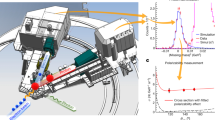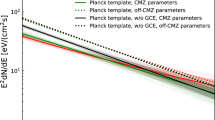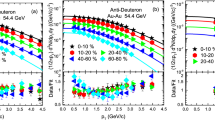Abstract
A CONVERSATION I had with Prof. Bragg, of the Adelaide University, in passing through Adelaide last summer suggested some thoughts in regard to the nature of the α rays which may be of interest in view of Prof. Rutherford's letter in last week's NATURE. Prof. Rutherford announces that he has at last succeeded in detecting the positive charge carried by the α rays of radium by using a magnetic field to deflect and remove the slow-moving electrons present with the α particles. He says, “I think these experiments undoubtedly show that the α particles do carry a positive charge, and that the previous failures to detect this charge were due to the masking action of the large number of slow-moving electrons emitted from the plates.” These results, while they afford a welcome confirmation of the conclusions drawn from the evidence of the magnetic and electric deviation suffered by the α rays, do not, to my mind, finally settle the question.
This is a preview of subscription content, access via your institution
Access options
Subscribe to this journal
Receive 51 print issues and online access
$199.00 per year
only $3.90 per issue
Buy this article
- Purchase on Springer Link
- Instant access to full article PDF
Prices may be subject to local taxes which are calculated during checkout
Similar content being viewed by others
Rights and permissions
About this article
Cite this article
SODDY, F. Charge on the α Particles of Polonium and Radium. Nature 71, 438–439 (1905). https://doi.org/10.1038/071438e0
Issue Date:
DOI: https://doi.org/10.1038/071438e0
Comments
By submitting a comment you agree to abide by our Terms and Community Guidelines. If you find something abusive or that does not comply with our terms or guidelines please flag it as inappropriate.



